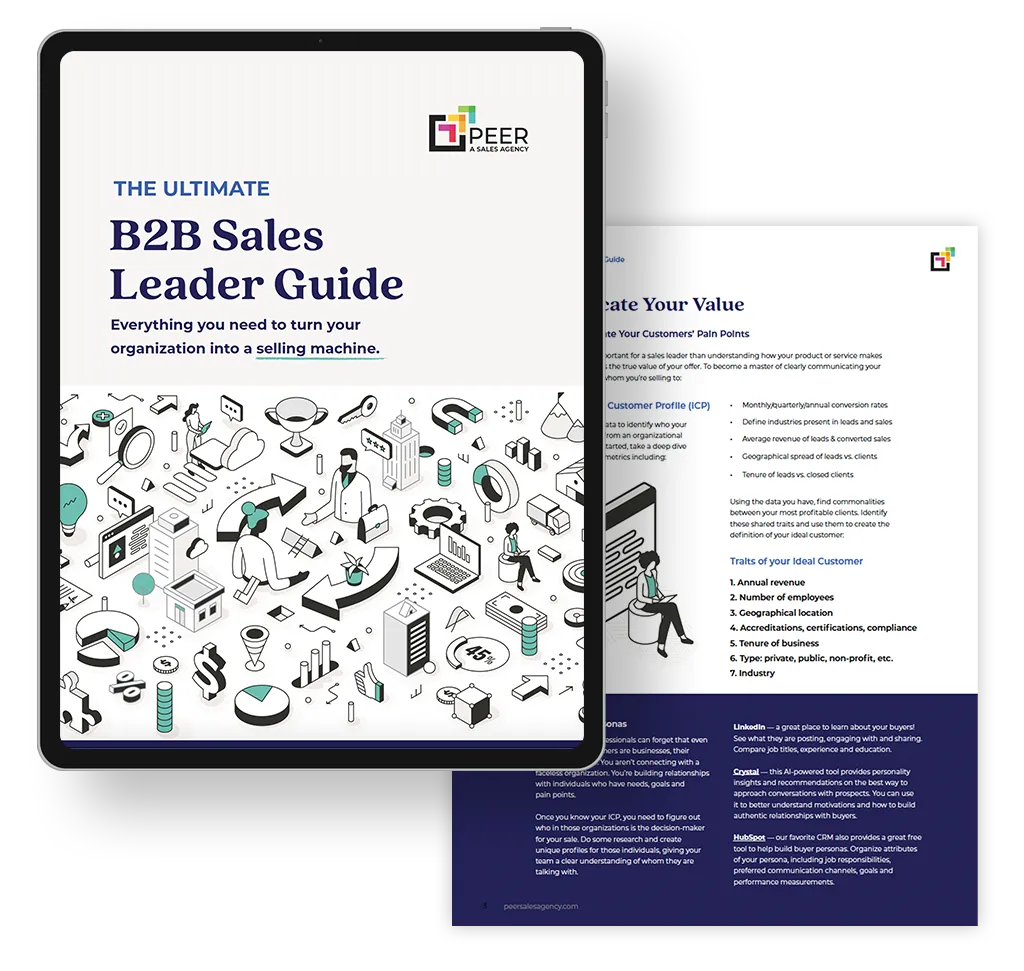So You Need a Marketing Director?
A marketing director can help your business grow and reach new heights in the right situation. But finding the right person for this role is easier said than done. Are you feeling confident, or cautiously optimistic?
This is a significant investment for your company. It indicates that the company is expanding and needs more specialized knowledge in its marketing and sales support activities.
The job market is flooded with candidates, each promising to be the best fit for your company. Make sure you are evaluating your options carefully and acquiring the maximum number of skills for the investment.
Is a Marketing Director Right for You?
First, it’s important to consider if a full-time marketing resource is the right fit for your organization. Smaller businesses may benefit more from outsourcing their marketing needs or hiring a generalist who can handle multiple roles. Before deciding whether or not to hire a marketing expert, take stock of your business goals and resources.
Here are some reasons why hiring a marketing director may not be ideal, but we also have some recommendations to ensure a better fit for that individual:
1. Cost for a single resource
Hiring a marketing director can be expensive, especially for a single resource. According to Glassdoor, the average salary for a marketing director in the United States is around $120,000 per year. This doesn’t include benefits or any other costs associated with hiring a full-time employee, such as payroll taxes and healthcare.
2. Limited experience
There are two areas of expertise you need to consider when evaluating experience:
- What industry or vertical is the candidate from?
- What discipline (design, copy, media, strategy) does the candidate specialize in?
It is important to find a marketing professional who understands your business, your customers, and your competition. They also need the skills to execute the work.
Otherwise, two things may happen:
- They struggle to develop effective marketing strategies that resonate with your target audience.
- The process is slower and longer than you hoped, delaying the expected return.
3. Lack of flexibility
A marketing director may have a specific skill set and approach they want to implement in your business. This can be great if their ideas align with your business goals, but it can also limit your flexibility and creativity. You may be stuck with a rigid marketing plan that doesn’t allow for experimentation or quick pivots if things aren’t working.
Setting up a Marketing Director for Success
Still want a full-time marketing director? We have found that many marketing director roles are set up to fail, and the responsibility lies with both parties. Typically, two things happen:
- The job description asks for too much from one person.
- The applicant says they can handle it all.
This is the beginning of a frustrating relationship. Let’s explore a few reasons why this is the case, and what can be done to prevent it.
Unrealistic expectations
One of the most common reasons why marketing directors fail is that they are given unrealistic expectations. This is often due to a lack of understanding about the time and resources required to execute successful marketing campaigns. According to a survey by the American Marketing Association, 57% of marketers feel their company’s expectations of what marketing can achieve are too high.
⭐ Recommendation:
Set realistic expectations: Companies should have a clear understanding of what marketing can achieve. This leads to realistic goals and expectations for their marketing directors.
Lack of resources
Many marketing teams are not given the resources they need to execute successful marketing campaigns. This can include a lack of budget, staff, or tools necessary to reach the target audience effectively. According to the CMO Council, 53% of marketing executives cite budget constraints as a major challenge in achieving their marketing objectives.
⭐ Recommendation:
Provide resources: Companies should provide marketing directors with the resources they need. Successful marketing campaigns require budget, staff, and tools. Skimping on one often impacts the effectiveness of the others.
Not sure what that budget looks like? Conservative estimates are 2-5% of revenue, with growth-minded B2B companies in the 10-20% range. If you’re a $10M company, that is $200-500K minimum, with $1M being a more realistic budget for growth.
Poor alignment with sales
Marketing and sales should work together. Often these two functions operate in silos, leading to a lack of alignment. This can result in marketing campaigns that don’t generate the expected results. Sales teams get frustrated, unable to close the leads generated by marketing.
According to a study by HubSpot, only 22% of businesses say that their sales and marketing teams are tightly aligned.
⭐ Recommendation:
Foster alignment with sales: Companies should encourage collaboration between marketing and sales. Build processes that ensure these two functions are tightly aligned.
Did your sales leader help author the marketing director’s job description? If not, that is your first indicator that sales and marketing aren’t aligned.
Lack of data-driven decision making
Marketing is an ever-evolving field, and successful marketing campaigns require constant testing and iteration. However, many marketing directors lack access to the data and analytics needed to make informed decisions. According to a survey by Teradata, only 50% of marketers feel that their organization is data-driven.
⭐ Recommendation:
Emphasize data-driven decision-making: Provide marketing directors with access to the data and analytics needed to make informed decisions.
Unable to measure ROI
Marketing directors are often under pressure to demonstrate a return on investment for their marketing campaigns. However, measuring ROI can be challenging, especially if marketing and sales are not tightly aligned. According to a survey by Forrester, only 37% of marketers say they are able to demonstrate ROI. Additionally, they may have little to no experience reporting on the return of marketing spend.
⭐ Recommendation:
Focus on measuring ROI: Companies should work to develop metrics and processes for measuring the ROI of marketing campaigns. Marketing directors need tools and support to track and report on ROI.
Your Sales-Aligned Marketing Solution
As you make a decision on your marketing solution, you need a plan to keep your marketing and sales teams aligned. While expanding your in-house marketing capabilities, don’t let their focus stray from important sales-enablement strategies. Doing so can lead to tension and conflict between your sales and marketing teams. This tension will jeopardize the success of a company’s marketing efforts.
When developing your marketing strategies, we’re happy to help craft a sales-aligned approach. We can help support a robust marketing plan, taking on social media management, lead generation campaigns, and automated nurture sequences. Working with an outsourced partner can help you get the most bang for your buck. An agency can unlock a wide range of expertise and skills without taking on additional overhead.
If you’d like to learn more about our sales-enablement marketing strategies, reach out and contact us. We look forward to working with you.




